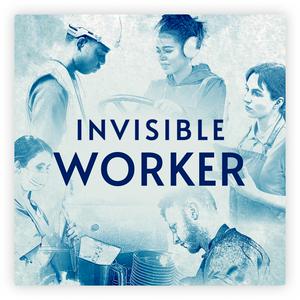FinTech pioneer Nigel Morris (Capital One, QED Investors) joins the show to discuss the double-edged sword of frictionless digital payments and the challenge of low financial literacy. He explores how data-driven strategies democratized credit, the psychology behind modern debt, and the potential for "Agentic AI" to help the working majority make better long-term financial decisions.
Show notes from our host, Emily Trant:
It’s rare to meet a titan of finance who views the world through the lens of a psychologist, but that’s exactly what makes this man such a force in the world of FinTech. For decades, the credit card industry was a monolith that essentially ignored anyone who didn't fit a very specific profile. Then came Nigel Morris.
When I sat down with Nigel, I didn't just meet a venture capital powerhouse or the co-founder of a Fortune 500 company. I met a "rabid empiricist" with a psychology degree who saw, earlier than almost anyone else, that the mainstream financial system was failing the actual mainstream, the working majority. He and Richard Fairbank pioneered an "information-based strategy" that didn't just change how banks work; it fundamentally democratized access to credit for millions of Americans who had been turned away by traditional institutions.
Nigel, thank you for your decades of pushing boundaries, for your relentless optimism about how AI can finally bring "hedge fund economics" to the everyday person, and for helping us see the invisible gaps where FinTech can truly flourish.
Useful resources we discuss in the show:
QED Investors: Explore the venture capital platform Nigel co-founded, which focuses on disruptive fintech companies that are remaking the global financial system.
Learn more here: https://qedinvestors.com/
The Story of Capital One: For the full deep dive into how Nigel and Richard Fairbank revolutionized credit, check out The Capital One Story by Mary Curran-Hackett: https://www.amazon.com/Capital-One-Story-Institution-Leadership/dp/1400232791
ClearScore: The platform Nigel co-founded to democratize credit information by providing free access to credit scores and reports.
Check it out here: https://www.clearscore.com/
The Future of FinTech (BCG Report): Nigel discusses insights from the 3rd annual report with BCG on how challenger banks are serving the underserved.
Read the report here: https://www.bcg.com/publications/2024/global-fintech-prudence-profits-and-growth
Hosted on Acast. See acast.com/privacy for more information.


